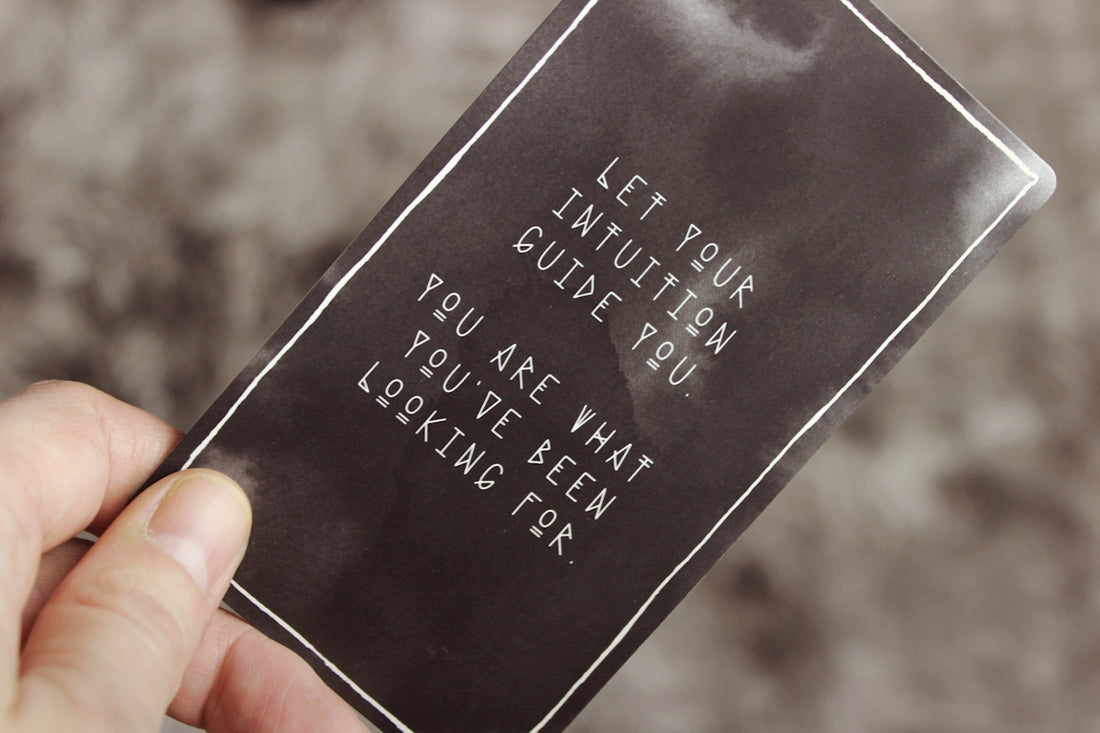
The Science Behind Intuition: How Does It Really Work
Share
Intuition is often described as our "sixth sense," an invisible guide that helps us make decisions without conscious reasoning. But is there any scientific proof behind this seemingly mystical experience? In this blog post, we'll delve into the science behind intuition, exploring how it works, and why it's so much more than just a feeling.
The Neuroscience of Intuition
Scientists have long been intrigued by the phenomenon of intuition. Research suggests that our brains are constantly processing information at a subconscious level, far beyond our conscious awareness. This background processing is what forms the bedrock of our intuitive insights. Studies using brain imaging techniques have shown that the brain's right hemisphere and the limbic system, which play a role in emotional and social processes, are significantly involved in intuitive thinking.
Intuition is also thought to be the result of pattern recognition. Our brains are wired to recognize and store patterns from our experiences. When faced with a new situation, the brain quickly searches its mental database to see if it recognizes aspects of the situation, drawing quick — and often surprisingly accurate — conclusions.
The Role of Emotion in Intuition
Emotions play a crucial role in intuition. The gut feelings we often refer to are tied to our emotional experiences and memories. Neurotransmitters such as serotonin and dopamine, which regulate mood and emotion, are involved in the intuitive process. Emotional intelligence, which involves recognizing and managing your emotions and those of others, is a key component of harnessing intuition effectively.
Enhancing Intuition
Certain practices and tools can help heighten your intuitive abilities. Meditation and mindfulness, for example, are known to improve focus and clarity, creating a mental environment conducive to intuition. Engaging in activities that promote relaxation and reduce stress — such as yoga, creative arts, or time spent in nature — can also sharpen your instinctive abilities.
Furthermore, surrounding yourself with objects that foster a sense of calm and focus can aid in cultivating intuition. Consider integrating crystal stones and amethyst necklaces into your mindfulness practice. Crystals like Rhodonite are believed to promote emotional healing and balance, enhancing your intuitive capability. You can find a Large Rhodonite Crystal Stone to harmonize your emotional energies.
Equally powerful are Amethyst Necklaces, which are associated with spiritual energy healing. Wearing or meditating with amethyst may open your mind to insights and reflections, providing a pathway to clearer and more enlightened intuition.
Trusting Your Inner Voice
Ultimately, intuition is about trusting that inner voice, that subtle nudging that guides you. Building trust in your intuition requires practice and self-reflection. By using practices that enhance your mental clarity and emotional well-being, you can tap into your intuitive capabilities with greater confidence and precision.
To learn more about how to enhance your intuition with the right tools and practices, visit tookiestarot.com.
